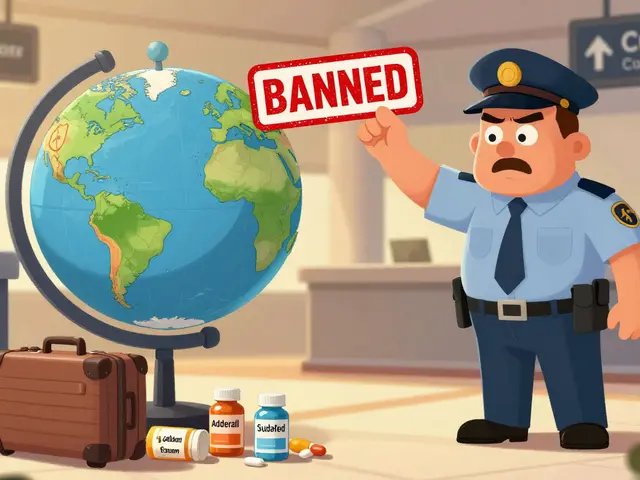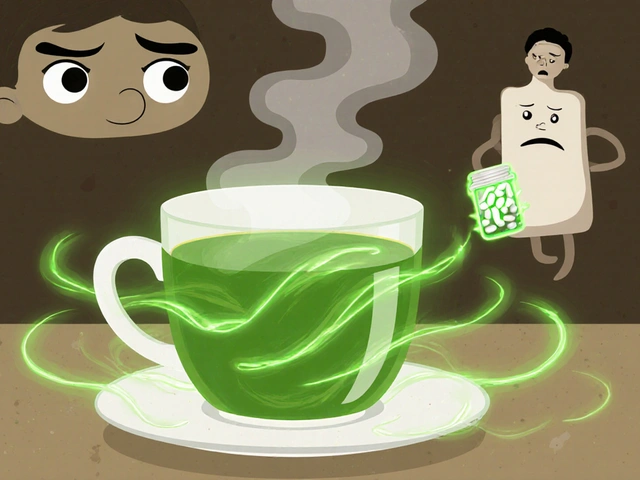Itching: what it means and how to stop it fast
Itching (pruritus) is annoying and common. Sometimes it’s a dry patch after winter. Other times it’s a sign of an infection, allergy, or a medicine causing trouble. You don’t always need a doctor, but knowing what to try first and what warning signs to watch for makes a big difference.
Common causes you can check at home
Start by asking a few quick questions: Is the itch local or all over? New soap, laundry detergent, or a change in skincare can trigger contact irritation. Dry skin is the simplest cause—especially in cold weather or after hot showers. Small, localized itches often come from insect bites, fungal infections (athlete’s foot), or allergic rashes.
More persistent or widespread itching can come from viral or bacterial infections, parasites (like pinworms), or side effects of medications. Some systemic issues—liver or kidney problems, thyroid changes, or blood disorders—can also cause long-lasting itch without an obvious rash.
Practical, safe steps for quick relief
1) Cool it down. A cool compress or a short cool shower eases the immediate urge to scratch. Avoid hot water; it makes itching worse. 2) Moisturize. Use a fragrance-free, thick moisturizer after bathing. Ointments and creams beat thin lotions for dry skin. 3) Over-the-counter help. Oral antihistamines (like cetirizine or loratadine) help allergic itches. A 1% hydrocortisone cream can reduce inflammation for short stretches—don’t use it on large areas or open wounds for long. 4) Avoid irritants. Ditch scented soaps, harsh exfoliants, and tight clothing until things calm down. Choose gentle, pH-balanced cleansers. 5) Hands off. Scratching gives temporary relief but damages skin and raises infection risk. Keep nails short and consider covering the area at night if you scratch in your sleep.
For suspected fungal or parasitic causes, specific treatments are needed. Over-the-counter antifungal creams can clear athlete’s foot or ringworm. For intestinal parasites, a doctor will confirm with a test and prescribe the right medicine—don’t self-dose without guidance.
When itching follows a new prescription or a medical treatment, tell your prescriber. Some antibiotics, antivirals, and other drugs can trigger itching. For viral skin problems like cold sores or shingles, antiviral treatment (like aciclovir) can reduce symptoms when started early.
See a doctor right away if you have fever, spreading redness, blisters, trouble breathing, or if the itch is severe and doesn’t improve after a week of simple care. Also get checked if itching wakes you every night or comes with unexplained weight loss, jaundice, or changes in urination—these can point to deeper issues.
Small changes often fix most itches: gentler skin care, proper moisturizers, and avoiding known triggers. If it sticks around or looks infected, get medical advice—fast relief often starts with a simple diagnosis.

9 Alternatives to Atarax for Allergy and Itching Relief
Explore effective alternatives to Atarax for managing allergies and itching, each with distinct advantages and disadvantages. This article will help you understand the various antihistamine options available, offering insights into their effectiveness and potential side effects. Whether you seek moderate sedation or less drowsiness, these alternatives provide varied choices to suit individual needs.
Categories
- Medications (70)
- Health and Medicine (61)
- Health and Wellness (36)
- Online Pharmacy Guides (16)
- Nutrition and Supplements (9)
- Parenting and Family (3)
- Environment and Conservation (2)
- healthcare (2)
- prescription savings (1)



